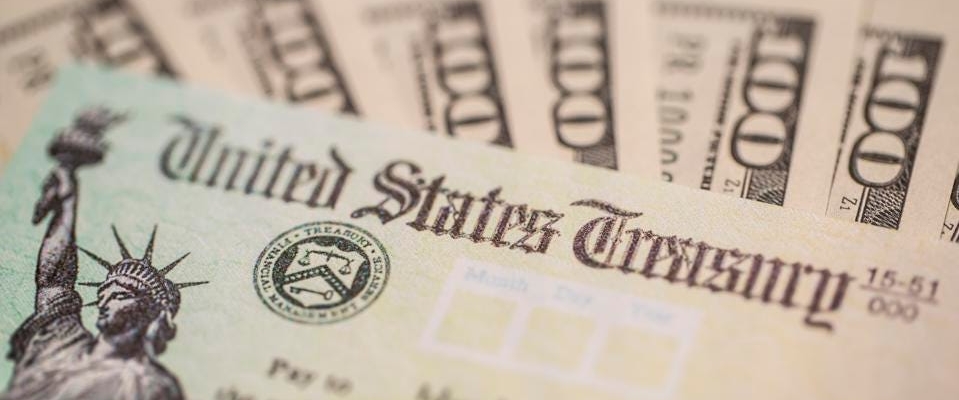When Is Inflation Good for the Economy?
Inflation is and has been a highly debated phenomenon in economics. Even the use of the word “inflation” has different meanings in different contexts. Many economists, business people, and politicians maintain that moderate inflation levels are needed to drive consumption, assuming that higher levels of spending are crucial for economic growth.
The Federal Reserve typically targets an annual rate of inflation for the U.S., believing that a slowly increasing price level keeps businesses profitable and prevents consumers from waiting for lower prices before making purchases. There are some, in fact, who believe that the primary function of inflation is to prevent deflation.
Others argue that inflation is less important and even a net drag on the economy. Rising prices make it harder to save money, driving individuals to engage in riskier investment strategies to increase or even maintain their wealth. Some claim that inflation benefits some businesses or individuals at the expense of others.
The Impact of Inflation
The primary impact of inflation is decreasing purchasing power. Although the denomination of currency doesn’t change, the impact of inflation is that the same amount of currency can buy less across inflationary periods. Though individuals may receive the cost of living adjustments to wages they take home, they more commonly see repercussions in the groceries they buy, the rent they pay, and transactions they incur.
As a result of higher inflation, the Federal Reserve often enacts monetary policy leading to higher federal funds rates. Higher federal funds rates have a domino effect to many other forms of lending and cause the cost of debt to be higher. Higher federal funds rates often, and credit card rates.
Because of higher debt rates, a downstream effect of higher inflation is a slower economy. During inflationary periods, prices are higher, and it is more expensive to incur debt. For these two reasons, companies often sell fewer products and the economy slows. This may lead to diminished corporate profits, layoffs, and pressures on households.
The end result of this cycle of events is a potential recession. The Federal Reserve tries to balance stemming inflation and maintaining acceptable levels of unemployment. However, each of the two items often moves in opposite directions. Their policies often increase one and decrease the other. Though there are no guarantees on the downstream effects of monetary policy, the Federal Reserve often risks causing a recession when combatting inflation.
Benefits of Inflation
When the economy is not running at capacity, meaning there is unused labor or resources, inflation theoretically helps increase production. More dollars translates to more spending, which equates to more aggregated demand. More demand, in turn, triggers more production to meet that demand.
British economist John Maynard Keynes believed that some inflation was necessary to prevent the Paradox of Thrift. This paradox states that if consumer prices are allowed to fall consistently because the country is becoming too productive, consumers learn to hold off their purchases to wait for a better deal. The net effect of this paradox is to reduce aggregate demand, leading to less production, layoffs, and a faltering economy.
Economists once believed an inverse relationship existed between inflation and unemployment, and that rising unemployment could be fought with increased inflation. This relationship was defined in the famous Phillips curve. The Phillips curve was somewhat discredited in the 1970s when the U.S. experienced stagflation.
Who Benefits From Inflation
Inflation makes it easier on debtors, who repay their loans with money that is less valuable than the money they borrowed. This encourages borrowing and lending, which again increases spending on all levels. For example, if a debtor has $10,000 of debt during an inflationary period, that debt has less worth as time progresses. From a purchasing power standpoint, it’s more advantageous to slowly pay off this debt during highly inflationary periods due to the debt’s diminishing value.
More specifically, homeowners that have agreed to long-term, fixed mortgages may benefit from inflation. Higher rates often push prospective buyers out of the market, so those who are in greater financial positions may benefit from the diminished housing market.
Because of the slowing economy and risk of recession, individuals that have tenure at their job or are in more secure positions often benefit. People in positions of less demand or start-up departments/companies are more at-risk of corporate budget cuts.
Last, when inflation is higher, the purchasing power of one country’s currency often weakens against other international currencies. This often causes downward pressure that strengthens the value of international currencies in relation to the inflationary currency. Those owning foreign currency that take advantage of favorable exchange rates may benefit from inflation of another country.
About E. J. McKay
E.J.McKay is a Shanghai-headquartered investment bank with a special focus on mergers & acquisitions. We are one of the most long standing independent investment banks in China, with core business of mergers & acquisitions and financing advisory.


